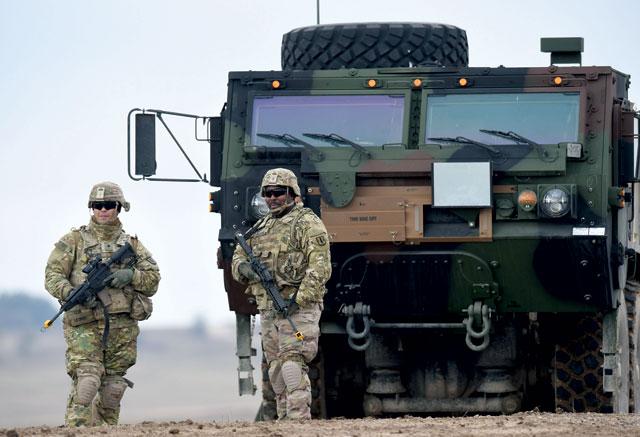- International News
- Web-2020-06-17 | 05:37 pm

"We think that the US presence in Germany is important for the security not just of Germany but also for the security of the United States and especially for the security of Europe," German Foreign Minister Heiko Maas said during a visit to Poland.
Trump said he was reducing the numbers because Germany was "delinquent" in contributions to NATO and had treated the United States "badly" on trade.
Trump said there are 52,000 US soldiers stationed in Germany and he will bring this number down to 25,000.
But according to the Pentagon, there are only between 34,000 and 35,000 US soldiers permanently stationed in Germany. Rotation of units means the overall number can only temporarily top 50,000.
Maas said Germany had not been given any details on when and how the redeployment might take place.
"Neither the State Department nor the Pentagon has been able to provide any information about this,” he said, adding that any changes to Europe’s security architecture "definitely need to be talked about”.
NATO chief Jens Stoltenberg also said that US troops in Europe made both sides of the Atlantic safer.
Defence ministers from the alliance will discuss Trump’s plans during video talks on Wednesday and Thursday.
Lithuanian President Gitanas Nauseda said in a statement to AFP that the US presence in Europe was "the foundation of NATO deterrence”.
"We expect that some of the troops that the United States plans to relocate from Germany will stay in Europe,” he said, adding that Lithuania "would be glad to host US troops on a regular basis”.
Permanent US presence in Poland?
The move has been criticised as weakening America’s commitment to European defence as well as its ability to wield influence in the Middle East and Africa.
US troops have been stationed in the geopolitically vital country since the end of World War II, forming the bulk of NATO’s conventional defence against the Soviet Union during the Cold War.
The resurgence of Russia’s military ambitions under President Vladimir Putin has given the US presence new importance in the last two decades, with central and eastern European states leading the way in pressuring for stronger US defences.
Speaking at a joint press conference with Maas, Polish Foreign Minister Jacek Czaputowicz said his government had been in discussions about boosting the number of US troops in Poland, but the two issues were separate.
"I want to underline that these talks [with the US] have no connection with the recent US declarations and US-German relations concerning the presence of, or reduction of, US forces in Germany,” he said.
"From our standpoint, US forces in Germany also serve our security. We would want that presence in Germany to be continued.”
A country of 38 million people on NATO’s eastern flank, Poland has long campaigned for a permanent US troop presence on its soil to ward off Russian adventurism.
Trump has already upped his country’s troop rotations in Poland to 5,500 personnel as part of a wider NATO response to concerns in the region triggered by Russia’s 2014 annexation of territory from neighbouring Ukraine.
Having spent decades under Soviet rule before 1991, Baltic NATO ally Latvia also hailed the possibility of fresh US deployments to the sensitive region bordering Russia.
"We would welcome more American involvement in the safety of Baltics, including permanently stationed US troops here,” Latvia’s Defence Minister Artis Pabriks told AFP in Rig












